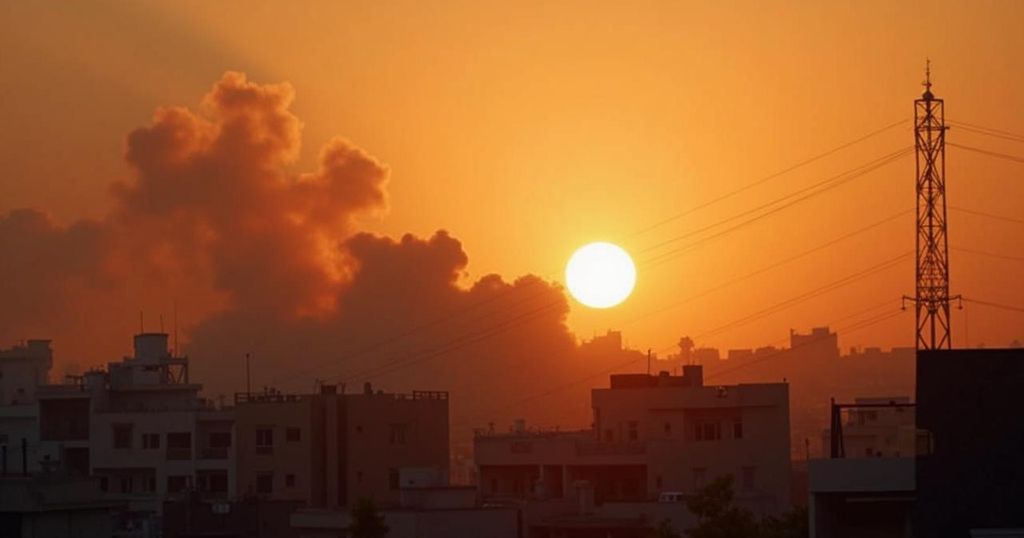Escalating Tensions: Israel-Hezbollah Conflict Reaches New Heights
The conflict between Israel and Hezbollah has escalated, highlighted by rocket fire from Lebanon and an Israeli missile strike in Tel Aviv. The Kremlin has urged Russian citizens to leave Lebanon, while human rights groups criticize inflammatory statements from Israeli media. Hezbollah’s missile targeting of central Israel marks a significant change in the conflict, with Iran warning against the effectiveness of eliminating Hezbollah leaders. An IDF report noted a strike on an assisted living facility in northern Israel, with no injuries reported. Regional leaders express concern over the risk of an all-out war.
Tensions between Israel and Hezbollah have escalated significantly following a recent missile strike in Tel Aviv that prompted retaliatory actions in northern Israel. The Israel Defense Forces (IDF) reported that approximately 40 rockets were launched from Lebanon since the morning, resulting in significant damage and casualties in southern Lebanon, where reports indicate five fatalities due to Israeli airstrikes. In a marked escalation, Hezbollah targeted central Israel for the first time with a missile aimed at the Mossad headquarters. Although the missile was intercepted successfully by Israel’s David’s Sling defense system, it signifies a critical shift in the conflict’s dynamics. In a statement, the Kremlin advised Russian nationals to evacuate Lebanon urgently amid the heightened hostilities, cautioning that Israeli strikes could destabilize the region further. Human rights organizations have condemned inflammatory rhetoric from Israeli media, specifically Channel 14, which reportedly promoted genocidal sentiments against Palestinians in Gaza, raising broader concerns about the conduct of the conflict. Iran’s Supreme Leader remarked that eliminating key Hezbollah figures would not incapacitate the group, reinforcing the resilience of Lebanon’s defense against Israeli aggressions. Additionally, an IDF report confirmed that a rocket impacted an assisted living facility in the northern city of Safed, causing property damage but, thankfully, no injuries. As regional leaders express grave concern about Israel’s actions potentially leading to an expansive war, the situation remains precarious and warrants close monitoring.
The ongoing conflict between Israel and Hezbollah has intensified, particularly in light of recent military actions and retaliations. The backdrop of this violence stems from longstanding animosities between Israel and Hezbollah, a Lebanese militant group with substantial support from Iran. Cross-border firings and airstrikes are not new, but the current flares of aggression reflect an alarming escalation of hostilities that threaten not only the immediate region but also the broader Middle East. Key players in the region, including Russia and various Arab nations, are voicing their concerns regarding the potential for an all-out war, amid reports of serious international implications for the stability of Lebanon and beyond.
In conclusion, the latest hostilities between Israel and Hezbollah reflect a significant increase in violence, marked by missile strikes and retaliatory actions resulting in casualties and property damage. The potential for broader regional conflict is heightened, as international voices, including the Kremlin, call for caution and evacuation from Lebanon. Reports of alarming rhetoric in Israeli media further compound fears of deteriorating humanitarian situations in Gaza, underscoring the need for urgent diplomatic efforts to de-escalate the situation.
Original Source: www.haaretz.com




Post Comment